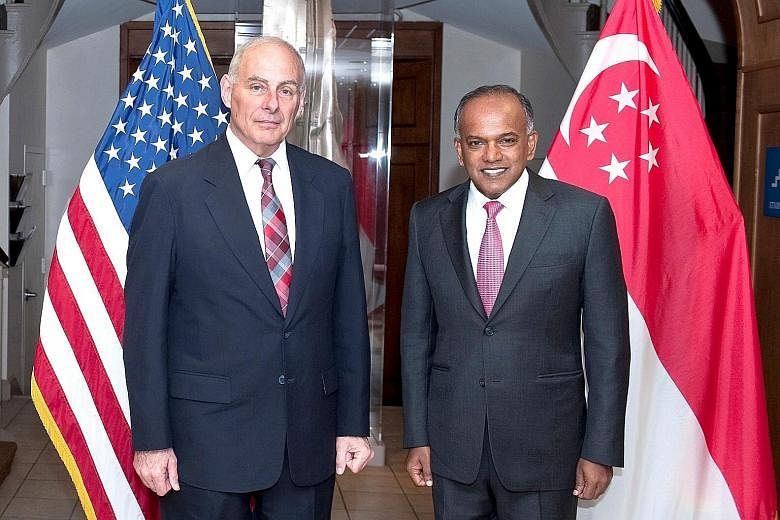There is a need for a concerted international strategy to deal with the underlying causes of radicalisation, Singapore's Home Affairs and Law Minister K. Shanmugam said on Wednesday (Thursday morning Singapore time), as he urged the United States to get involved in efforts to counter issues at the root of extremism.
He was speaking at a seminar in Washington on the conflict in Syria and radicalisation in South-east Asia, amid international concern over the trend of ISIS' foreign fighters returning to their countries and seeking to set up caliphates.
In South-east Asia, officials are trying to get like-minded countries together to try and deal with these issues, he said. "We may not be able to deal with all of them but at least we have a platform to start trying and talk about these issues and possible solutions. But America has to get involved, other countries have to get involved."
The cost of getting started at this stage is relatively low, but will be much higher later on, he added.
Many countries have focused on taking out terrorist leaders, dismantling groups and taking aim at their finances, but this is not enough.
"If we do not deal with the underlying philosophy and the underlying causes... all you will be doing is cutting out their heads and new heads will come up," he added.
The seminar was organised by the Johns Hopkins School of Advanced International Studies and Singapore's S. Rajaratnam School of International Studies.
In his speech, Mr Shanmugam outlined how South-east Asia, with its large Muslim population, was a target for ISIS, which seeks a caliphate in Indonesia, Malaysia and southern Philippines, and has drawn 1,000 fighters from the region, who form their own combat unit. And while the threat to South-east Asia may seem far removed from the US, he said: "What you are seeing is a replay of what is happening in other parts of the world."
Citing how fighters against the Soviet Union in Afghanistan in the 1980s radicalised their societies when they returned, the minister noted that history is repeating itself today as ISIS fighters return home, including to South-east Asia.
Today, the rise of political Islam - aided by the Internet and funds from the Middle East for schools - makes South-east Asia fertile ground for radicalisation, with implications for America and its assets, he said.
Mr Shanmugam also cautioned against Islamophobia, saying that anti-Muslim sentiment feeds into the narrative of terrorists.
"We need to guard against that, and fight it. The vast majority of Muslim populations in most places are moderate and peaceful," he said.
Mr Shanmugam met US Secretary of Homeland Security John F. Kelly in Washington, and both men exchanged views on global terrorism and the challenges posed by radicalisation in South-east Asia.
He is also due to meet Mr Thomas Bossert, the Assistant to the President on Homeland Security and Counter-Terrorism, and senior officials from the Federal Bureau of Investigation, Central Intelligence Agency and Office of the Director of National Intelligence, Singapore's Home Affairs Ministry said.


